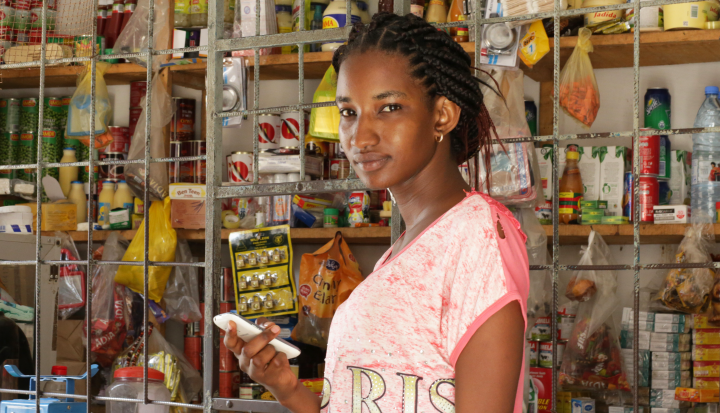Achieving Decent Work and Economic Growth by 2030: How Are Companies Making a Difference Through Payment Digitization?
Responsible digitization of payments is helping companies around the world make progress towards the United Nations Sustainable Development Goals (SDGs), set to be achieved in less than seven years. This is particularly important for small retailers, smallholder farmers and low-income workers with limited financial access. Digitizing payments not only improves efficiency and productivity for companies but also promotes financial inclusion, enabling millions of people to conduct transactions and control their finances in a faster, cheaper, and more secure manner, thereby contributing to the SDGs.
Globally, around 165 million unbanked adults received wages in cash from the private sector in 2021. This inefficiency hampers employers and workers, particularly women, in managing finances. In emerging economies, 131 million or 41% of registered small and medium enterprises are either fully or partially credit constrained. Additionally, about 145 million people received payments for the sale of agricultural products in cash. Of these, around 65 million people are women. Sub-Saharan Africa accounts for nearly half of these transactions, and approximately 55% of the recipients have a mobile phone.
The 2023 edition of ‘Igniting SDG Progress Through Digital Financial Inclusion’ provides examples of how businesses are contributing to the SDGs by digitizing payments. These examples highlight the benefits for companies, and the positive impact on small retailers, distributors, smallholder farmers and low-income workers in their value chains:
1. Increase in transparency, security and resilience for employees
SENEGAL A survey conducted across 19 industries, that covered 343 businesses revealed that 82% of them felt more secure with digital wages as they no longer had to carry physical paychecks while traveling. Additionally, 57% of workers stated that they had easier access to financial services once their wages were digitized.
BANGLADESH As a result of wage digitization in the garment industry, the percentage of both male and female workers who regularly save rose by 21 percentage points. The percentage of women who said they were more confident in their ability to handle unforeseen financial shocks rose by 19 percentage points.
2. Productivity gains
JORDAN When three Jordanian garment companies paid wages digitally, the time taken to make the payments fell by 66% for direct deposits to bank accounts, and by 70% for direct payments to e-wallets. Nearly three-quarters of Jordan’s garment workers are women.
INDIA After digitizing wage payments, Gap Inc. reported time savings equivalent to adding 16 more full-time workers per month to the production lines. This also led to a 20% cut in the annual employee turnover.
MEXICO According to a recent survey of 752 micro and small businesses that have adopted digital payments, 72% of respondents confirmed more customer spending, and 75% reported higher revenues.
3. Reaching financial equality for women
Despite progress, women in emerging economies lag behind men by 6 percentage points in owning accounts. Globally, just over 50% of women participate in the labor force compared to 80% of men, and are less likely to work in the formal sector, affecting their business growth opportunities.
Data reveals that 37% of women open their first financial account to receive wage payments or government funds. Digitizing private sector payments is identified as one of the top 10 action points to reach financial equality for women.
BANGLADESH Workers in the garment sector, majority of whom are women, experienced several benefits when they received wages directly into an account. These benefits included increased savings, ability to meet unexpected expenses (such as a family emergency), independent account management, utilization of a wider range of account features and avoidance of illicit fees.
KENYA When zero-interest savings accounts were offered to male and female entrepreneurs, women used them far more than men, and increased their business investment by 38% more than the control group.
These examples brings lessons on how to scale the adoption of digital payments in value chains, which is at the core of the UN Principles for Responsible Digital Payments. Key themes include value-added services for clients beyond payment to ensure businesses and people do not only get paid digitally, but can also spend digitally. Interoperable solutions with strong recourse mechanisms are also important features to build trust in the digital system, but also drive scalability and affordability of the digital payment solutions.
As global efforts persist to achieve the SDGs, private sector companies play a vital role in promoting digital financial inclusion. Businesses of all sizes can help women get bank accounts by paying their employees, suppliers, and distributors digitally rather than in cash and ensure digitization is happening responsibly. The pace of digitization is poised to continue to increase, our responsibility as businesses is to ensure it can be done responsibly to contribute to the SDGs and the economic development for all.










